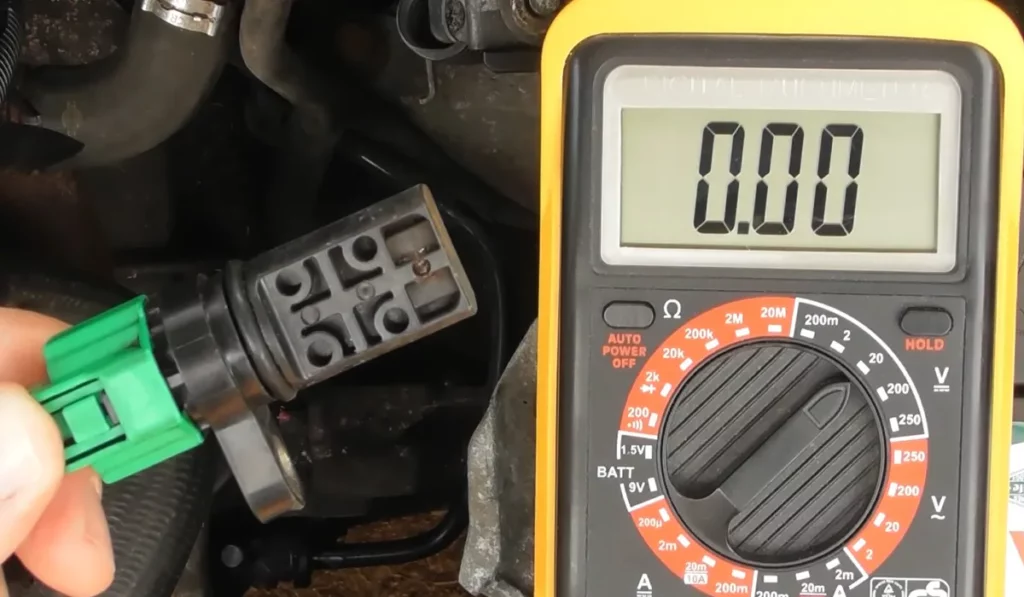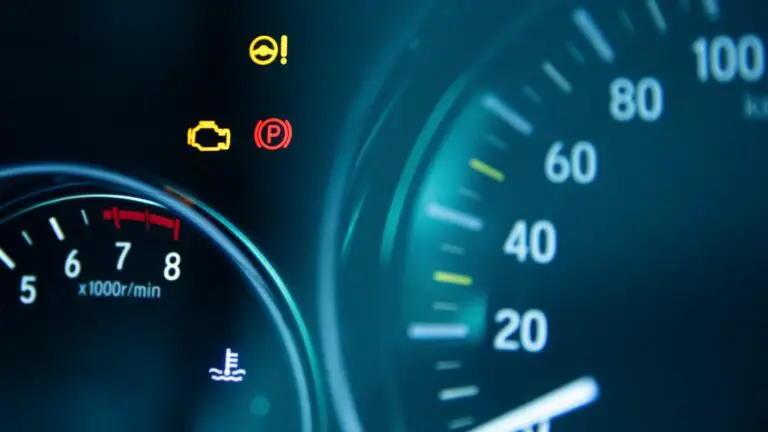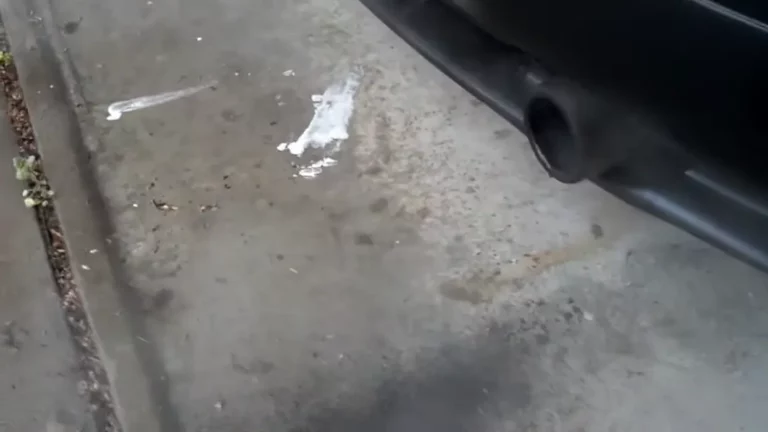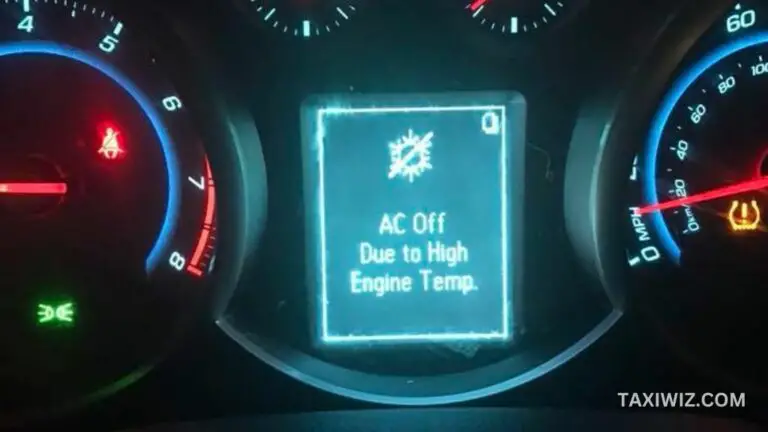Can A Bad Crankshaft Sensor Cause No Start?
Your car is at a complete stop and and there are signs of crankshaft sensor failure.
So, can a bad crankshaft sensor cause your vehicle to stop from starting?
The answer is yes. A damaged or faulty crankshaft sensor can lead to a vehicle not starting. This happens due to the ECU not being able to:
- Inject fuel at the right time
- Provide proper ignition
If this case becomes severe, then the car won’t start. The engine may crank, but there won’t be any movement.
There are quite a few factors that are happening in the background which prevent the car’s engine from coming alive.
Understanding them will allow you to discover why the crankshaft sensor is responsible for a no-start.

How is Crankshaft Sensor Stopping a Vehicle from Moving?
When a crankshaft sensor goes bad, it can cause the engine to encounter problems starting or not starting at all.
This is due to the fact that the crankshaft sensor works in conjunction with the vehicle’s computer system, also known as the engine control unit (ECU).
The sole purpose of the sensor is to detect the position & rotation speed of the crankshaft.
When the ECU receives the information from the sensor, it is able to determine the precise timing and certain amounts for the ignition and fuel injection.
And when it can’t, then proper timing isn’t maintained, and it results in the car not starting in extreme cases.
How Ignition Is Responsible for Car Not Starting
Without ignition, you can’t rev up or heat up the engine, which is responsible for almost everything that a car does.
That’s why ignition timing is crucial for an engine to start and run smoothly.
When you turn on the ignition key, your car’s engine performs a series of events, allowing it to ignite the air-fuel mixture and generate power.
Ignition timing is the exact moment when the spark plugs will ignite the air-fuel mixture inside the engine cylinders so that your car can have power.
If the timing is missed or poorly managed, then the engine won’t be able to have the power to start, and therefore your vehicle won’t start.
When the ignition timing is miscalculated due to a faulty crankshaft sensor, it may lead to the following, which ends up preventing the engine from starting:
Lack of Spark
For the ignition system, generating sparks at the right time ensures that the air-fuel mixture gets working.
But if the crankshaft sensor fails to provide accurate signals to the ECU, proper spark production isn’t possible.
Due to this lack of spark, the air-fuel mixture in the cylinders won’t ignite, resulting in a no-start condition.
Incorrect Spark Timing
Even if the right amount of spark is produced, it won’t be able to start the engine properly if it doesn’t spark at the right moment.
The ECU is dependent on the signals from the crankshaft sensor to precisely time the ignition spark.
If the sensor is malfunctioning or sending inaccurate signals, the spark may occur too early or too late.
In either case, the engine won’t start because the combustion isn’t happening at the right moment.
Inconsistent Firing
Imbalanced combustion means the engine is not starting properly. And that is exactly what happens when the ignition timing is off.
A bad crankshaft sensor can cause irregular firing of the spark plugs. This means that some cylinders may receive a spark while others may not.
When that happens, the engine won’t have a balanced combustion process, leading to a rough or complete failure to start.
One or multiple of these issues can occur if the ignition timing isn’t perfect, and your car won’t start when that happens.
How Fuel Injection is Responsible for Car Not Starting
Similar to the ignition timing maintaining the proper fuel injection timing is an essential factor for an engine to start and operate efficiently.
The engine’s fuel injectors perform the role of spraying the proper amount of fuel into each cylinder at the right moment.
So, when we refer to fuel injection timing, we refer to this precise timing of when the fuel is injected into the engine cylinders.
But if the ECU provides fast or delayed fuel injection, then it will lead to several issues which can prevent the engine from starting:
Inadequate Fuel Supply
If the cylinders don’t get the proper amount of fuel, then how will they start the engine?
That’s why when the crankshaft sensor fails to provide accurate signals to the ECU, it is not able to command the fuel injectors to deliver the proper amount of fuel so your car stays still.
This is due to the fact that the air-fuel mixture doesn’t consist of the right amount, and as a result, there isn’t proper combustion; thus, the car is not starting.
Excessive Fuel Supply
On the other hand, a faulty crankshaft sensor can also lead the ECU to inject too much fuel than the cylinders need.
In that case, this high amount of fuel in the air-fuel mixture will This rich fuel mixture can flood the engine saturating the spark plugs.
With saturated spark plugs, they will hinder the formation of necessary sparks for ignition.
So, the fuel can’t be too much or too little, and it has to be of the right amount. And the right amount can only be calculated by the ECU if it can get proper readings.
Timing Misalignment
If the crankshaft sensor is malfunctioning or sending incorrect signals, the ECU may misinterpret the position of the crankshaft.
This position misalignment will lead the fuel to be injected too early or too late, which will end up disrupting the combustion process.
And as we discussed earlier, if there is trouble with combustion, then the engine won’t start leaving the car motionless.
Improper Fuel Delivery
A bad crankshaft sensor can cause irregular fuel delivery to the cylinders.
Some cylinders may receive an adequate amount of fuel, while others might not receive enough to start combustion.
If some cylinders spark and others don’t, then the engine won’t start.
The situation doesn’t get worse right away. You might not even notice a breakdown until it’s too late.
But there are common signs like engine misfire and stalling that will indicate that there is something wrong with the crankshaft.
If you suspect something is wrong, check the situation with ignition and fuel injection, and you could possibly avoid this car not starting scenario.
Related Post: Bad Crankshaft Position Sensor Symptoms – All You Need to Know
Rare Scenario: ECU Malfunction Leading to Crankshaft Sensor Failure
This is quite rare, but there have been cases where the crankshaft sensors appeared to be damaged, but it was actually the ECU that was making mistakes.
Software glitches, system component damages, and electrical surges can lead to the ECU malfunctioning.
If that happens and the ECU is compromised, then it won’t be able to make proper calculations and guide other components to make the optimal decision.
Malfunctioning ECU can make false calculations based on crankshaft signals which can lead to the car not starting.
That being said, this is an extremely rare situation.
But if you suspect that your ECU is the main cause, then a system reboot might be able to fix your crankshaft sensors stopping your car from moving.
How to Fix This Issue?
The solution for solving this issue is simple, and you will need to repair or replace the crankshaft sensors. But first, you will have to determine if the crankshaft sensors are actually responsible for this.
To find out, you can opt for checking error codes, inspecting the sensors for visual damage, finding out whether the check engine light is on or off, and others.
If you can conclude that the reason your car is not moving is due to bad crankshaft sensors, then be assured that the malfunction issue has reached a severe state.
Delaying further will only damage the engine and other related components.
Unless you have the necessary skills and experiment, we recommend seeking the help of a professional mechanic in this case.
Related Post: What to Do After Replacing Crankshaft Sensor
Frequently Asked Questions [FAQs]
Can a faulty crankshaft sensor cause the engine to suddenly stall while driving?
Yes, a malfunctioning crankshaft sensor can disrupt engine timing, potentially leading to sudden engine stalls while driving.
Can the crankshaft sensors affect components other than the engine?
No, not directly, at least. While the primary impact of a faulty crankshaft sensor is on the engine’s performance, it can indirectly affect the vehicle’s transmission.
Can a faulty crankshaft sensor cause the engine to run hot or overheat?
No, it can’t. But engine misfires might make the engine heat up.
Final Thoughts
A bad crankshaft sensor will eventually cause a car not to start. So, if you see the early signs, then don’t ignore them.
Make it your first priority to tackle this problem unless you want to be stranded on the road or experience a situation where your engine crank but doesn’t start.
Related Post: Will Disconnecting Battery Reset Crankshaft Sensor?



